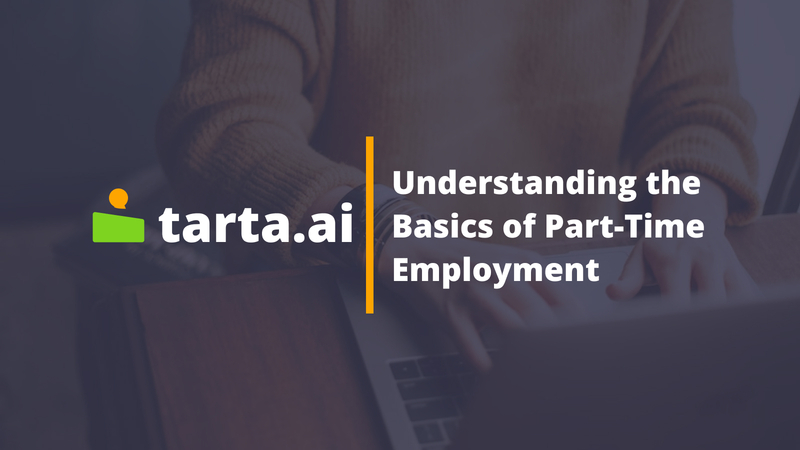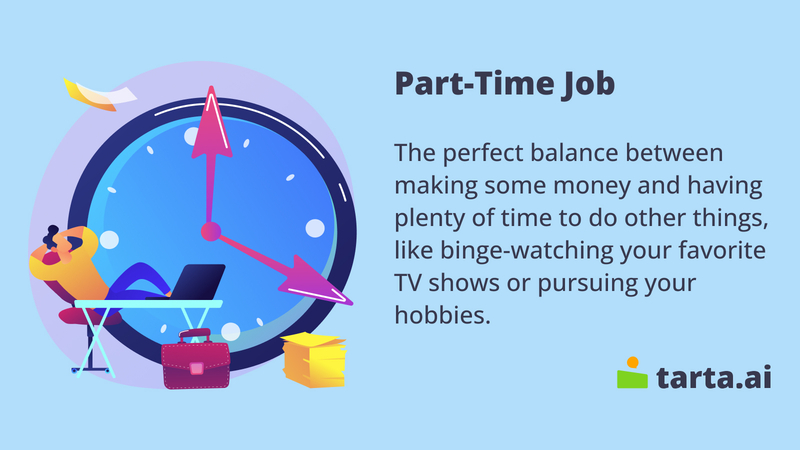Understanding the Basics of Part-Time Employment

Part-time employment is a type of employment where an employee works for fewer hours than a full-time employee. The number of hours for a part-time job can vary depending on the employer and industry, but it is generally less than 30 to 35 hours per week. Part-time employment can be found in a variety of industries, including retail, food service, healthcare, and many others.
In recent years, the popularity of part-time employment has increased significantly. There are around 27.54 million people employed part-time in the United States. This increase in part-time employment can be attributed to a variety of factors, including the growth of the gig economy, changes in work-life balance expectations, and the need for supplemental income.
Benefits and Drawbacks of Part-Time Employment
Part-time employment has several benefits and disadvantages for those who choose to pursue it. Here are some of the advantages and drawbacks of working part-time:
Benefits | Drawbacks |
Flexibility One of the main benefits of part-time employment is the flexibility it offers. Part-time jobs often have more flexible schedules than full-time jobs, which can be helpful for people who have other commitments, such as school, family, or hobbies. | Limited benefits Part-time employees may not be eligible for the same benefits as full-time employees, such as health insurance, retirement plans, or paid time off. This lack of benefits can be a significant disadvantage for those who need these benefits. |
Work-life balance Working part-time can also help individuals achieve a better work-life balance. With fewer hours worked, employees have more time to focus on personal and family responsibilities, which can lead to reduced stress levels and an improved quality of life. | Less job security Part-time employees may have less job security than full-time employees. Since part-time jobs are often more flexible and less expensive for employers, they may be more likely to be cut during times of financial hardship or restructuring. |
Opportunity to gain experience Part-time employment can be a great way to gain experience and build skills in a particular industry or field. This can be especially helpful for students or individuals looking to make a career change. | Limited advancement opportunities Part-time employees may have fewer opportunities for career advancement than full-time employees. Part-time positions are often entry-level or lower-paying jobs, which can make it difficult to advance within the company. |
Supplemental income Part-time jobs can also provide an additional source of income for individuals who may not be able to work full-time due to other commitments. This extra income can help pay for bills, tuition, or other expenses. |
While part-time employment can offer flexibility and other benefits, it's essential to consider the potential drawbacks, such as limited benefits, less job security, and limited advancement opportunities. Individuals should carefully weigh the pros and cons before pursuing a part-time job.

Types of Part-Time Employment
There are various types of part-time employment, each with its own unique characteristics and benefits. Here are some of the most common types of part-time jobs:
- Traditional part-time jobs: These are part-time jobs offered by traditional employers, such as retail stores, restaurants, and healthcare facilities. Traditional part-time jobs often have set hours and regular paychecks.
- Gig economy jobs: The gig economy refers to a growing trend of part-time work that is often temporary or project-based, such as driving for a ride-sharing service or delivering food for a meal delivery service. Gig economy jobs often offer more flexibility than traditional part-time jobs but may not provide the same level of job security or benefits.
- Freelancing: Freelancing involves working independently for multiple clients and is often done remotely. Freelancers can work part-time and have control over their schedules and projects, but may not have the same level of stability or benefits as traditional employees.
There are various types of part-time employment available, and each type offers unique benefits and challenges. Individuals should consider their skills, experience, and goals when deciding which type of part-time work is best for them.
Interesting fact:
About 23% of employed people in the United States work part-time.
Balancing a Part-Time Job with Other Commitments
Balancing a part-time job with other commitments can be challenging, but it's essential to find a balance that works for you. Here are some strategies for balancing a part-time job with other responsibilities:
Strategy | Description |
Time management strategies | Effective time management is crucial when balancing a part-time job with other commitments. Create a schedule or to-do list that includes all of your responsibilities and prioritize tasks based on importance and deadlines. Consider using time management tools, such as apps or calendars, to help you stay organized. |
Prioritizing responsibilities | When juggling multiple responsibilities, it's important to prioritize them based on importance and urgency. Make sure to prioritize tasks related to your part-time job, such as scheduled shifts or deadlines, while also making time for other important commitments. |
Communicating with your employer | It's important to communicate with your employer about your other commitments and any scheduling conflicts you may have. Be honest about your availability and communicate any changes as soon as possible. Many employers are willing to work with part-time employees to accommodate their schedules. |
Balancing a part-time job with other commitments requires effective time management, prioritization, and communication. By implementing these strategies, you can find a balance that works for you and ensure that you meet all of your responsibilities.
Interesting fact:
The average hourly wage for part-time workers in the United States is $14.47, compared to $26.09 for full-time workers.
Making the Most of Your Part-Time Job
A part-time job can offer more than just a paycheck. It can also provide opportunities for personal and professional growth. Here are some tips for making the most of your part-time job:
- Building skills and experience: Use your part-time job as an opportunity to build skills and gain experience in your chosen field. Look for opportunities to take on additional responsibilities, learn new skills, or work on projects that align with your interests.
- Establishing positive relationships with coworkers and supervisors: Building positive relationships with your coworkers and supervisors can help you learn more about your job and the industry, as well as potentially lead to future job opportunities. Take the time to get to know your colleagues and show a willingness to collaborate and learn from them.
- Seeking opportunities for advancement: Even if you're working part-time, it's important to think about your long-term career goals. Talk to your supervisor about opportunities for advancement within the company, such as training programs or leadership positions. Take the initiative to develop your skills and knowledge so that you can be ready for these opportunities when they arise.
A part-time job can be an opportunity to gain valuable skills and experience, build relationships, and advance your career. By taking a proactive approach to your job and seeking out opportunities for growth and development, you can make the most of your part-time employment.

Photo: Thought Catalog/Unsplash
Part-time employment can provide a range of benefits, including flexibility, work-life balance, and opportunities for gaining experience and supplemental income. However, there are also drawbacks to consider, such as limited benefits, less job security, and limited advancement opportunities.
When considering a part-time job, it's important to think about your personal goals, financial needs, and overall career aspirations. Evaluate the benefits and drawbacks of part-time work in relation to your specific situation and goals.
If you decide to pursue a part-time job, be proactive in managing your time, prioritizing responsibilities, and seeking out opportunities for growth and development. Build positive relationships with your coworkers and supervisors, and communicate openly and honestly about your availability and any scheduling conflicts.
Ultimately, a part-time job can be a great way to gain experience, earn income, and achieve work-life balance. By weighing the pros and cons and taking a strategic approach to your job, you can make the most of your part-time employment and achieve your career goals.
- Part-time employment offers flexibility, work-life balance, and opportunities for gaining experience and supplemental income.
- However, part-time employment also has drawbacks such as limited benefits, less job security, and limited advancement opportunities.
- There are different types of part-time employment, including traditional part-time jobs, gig economy jobs, and freelancing.
- Balancing a part-time job with other commitments requires effective time management, prioritization, and communication.
- Making the most of your part-time job involves building skills and experience, establishing positive relationships with coworkers and supervisors, and seeking opportunities for advancement.
- When considering a part-time job, it's important to evaluate your personal goals, financial needs, and overall career aspirations.
FAQ
Can I negotiate my salary for a part-time job?
Yes, you can negotiate your salary for a part-time job just like you would for a full-time job. However, keep in mind that part-time jobs typically offer lower pay than full-time jobs, so your negotiating power may be limited.
Do I have to pay taxes on my part-time job earnings?
Yes, you are required to pay taxes on your part-time job earnings. Your employer will typically withhold taxes from your paycheck, but it is your responsibility to file your taxes and pay any additional taxes owed.
Can I switch from a full-time job to a part-time job with the same employer?
It depends on your employer's policies and job availability. Some employers may allow you to switch to a part-time schedule if there is an opening available, while others may require you to resign from your full-time position and apply for a part-time position separately.
Can part-time jobs lead to full-time employment?
Yes, part-time jobs can lead to full-time employment. Many employers use part-time positions as a way to evaluate potential employees before offering them a full-time position.
Can I work two part-time jobs at the same time?
Yes, you can work two or more part-time jobs at the same time, as long as the schedules do not conflict with each other. However, it is important to ensure that you are not overworking yourself and can maintain a healthy work-life balance.
Can I work remotely in a part-time job?
Yes, some part-time jobs offer the option to work remotely, especially in fields such as customer service, writing, and graphic design. However, not all part-time jobs have remote options, so it's important to research and inquire with potential employers.